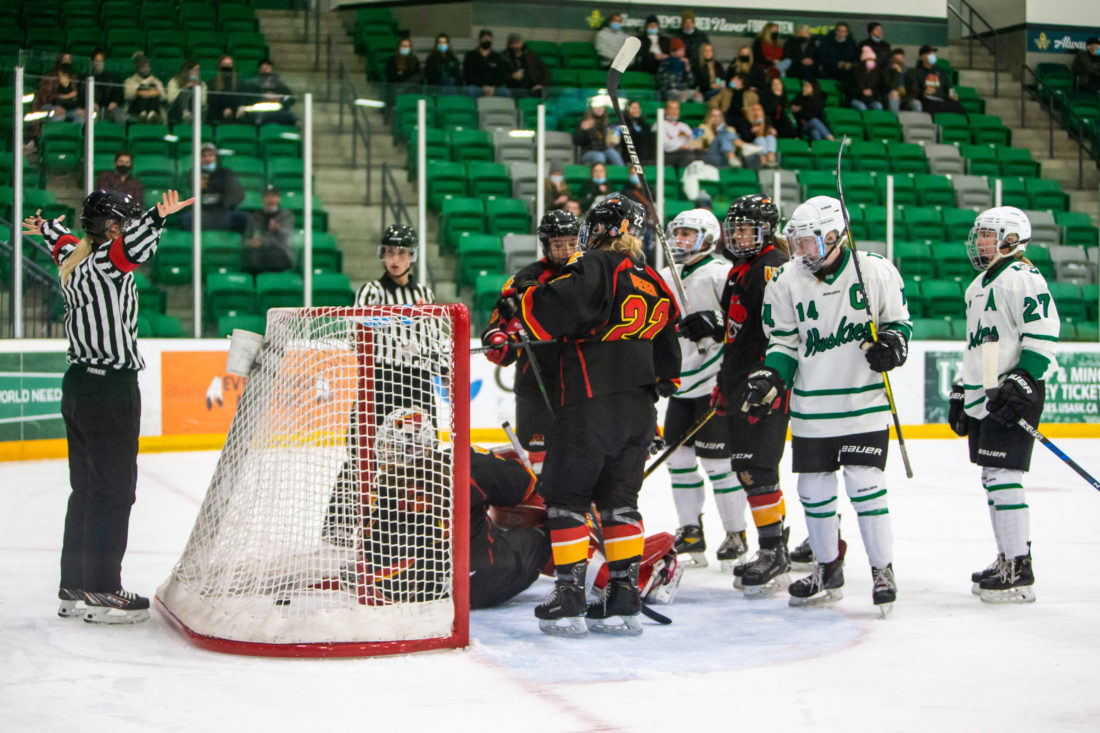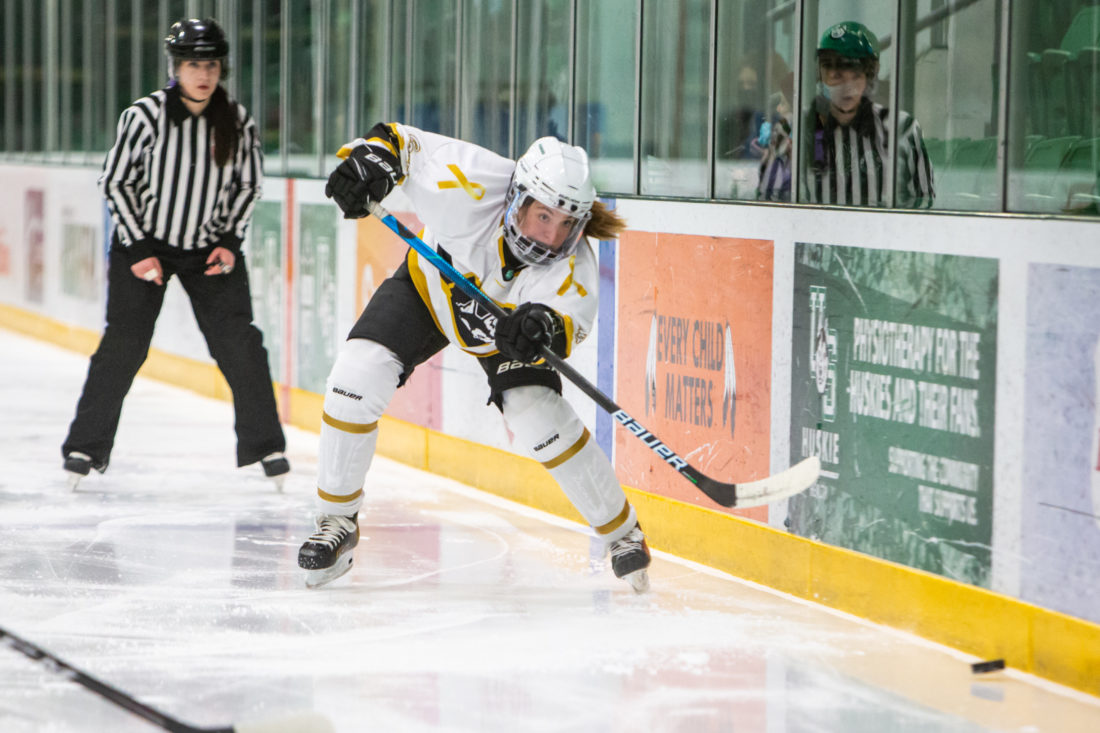A discussion and recognition of the frequent abuse that young hockey officials endure

For far too long, abuse towards hockey officials has been tolerated and accepted at every level. This culture of abuse has led to continuous shortages of passionate and dedicated officials, putting the future of officiating in our country at risk.
Individuals under the age of 18 are some of the most vulnerable people in our country. They cannot legally purchase alcohol or vote. And yet, somewhere in our culture we have decided it is okay for them to be the victims of verbal, emotional and even physical abuse when they wear a striped uniform. As a result, these young officials are saying that enough is enough, and simply hanging up their skates.
In a Hockey Canada audit done in 2019, British Columbia alone lost 38 per cent of officials under the age of 18 after their first year and 80 per cent within their first five years of officiating.
These numbers are similar across Canada, which has led to increased shortages of officials. Since most minor hockey games are done by young officials, and because there are so many kids quitting because of abuse, there has been an increase in games being cancelled due to shortage of officials.
To determine why abuse is so prevalent within hockey arenas, I interviewed multiple high-level officials to gain their perspective on the issue.
“People expect perfection. They don’t see the human side of it, and yelling at officials is considered a gray area when it comes to what’s ok,” said Michelle Stapelton, who has been officiating for 20 years and began at the age of 12. “Because we as officials are trained not to react when abuse is happening, this usually leads people to believe what they’re doing is ok.”
Jessica Coleman, who has also been officiating for 20 years and began at the age of 14, added to the idea of hockey arenas being seen as places where the rules of proper etiquette do not apply. In her words, “People grew up with the ‘rock ’em sock’ em’ days of hockey, and universally accepted the idea that anything that happens at the rink is the gray area, and anything done or said to officials is included in that gray area.” Coleman contrasted the lack of consequences for such behavior at hockey rinks to the real world, “where it would be considered assault.”
One example of young officials experiencing abuse comes from here in Saskatoon, where a parent yelled at a 16-year-old female official to “go home and make babies because that’s all you’re good for” after she had ejected the parent’s son out of the game.
Other documented incidents of abuse collected from a 2012 survey of 2,000 officials in Ontario include, but are not limited to, parents breaking the fingers of officials, sexual and homophobic comments to female officials, being spit on, players grabbing officials by the throat, officials getting punched and knocked out by parents and players, physical assault by a weapon and death threats.

It is not surprising that young referees are ending their officiating careers prematurely due to the prevalence of such abuse.
When officials were questioned about quitting being a consideration, they all responded with some sort of chuckle, or a variation of over-the-top head nods, laughs or smiles. The reality of the situation is that every official has found themselves questioning if all of the abuse that they endure is worth it. It has become exceptionally clear now, more than ever, that the answer is “no”.
High-performance officials described their own experiences of abuse as minor officials and the impact the abuse had on their officiating journey.
“Being screamed at by coaches and parents really affected my self-worth as a kid, so much so that I would get anxiety every time I walked into a rink,” Stapleton said. “It got to the point where I stopped accepting referee assignments and only accepted [linesperson] assignments, until I was about 20 years old.” As a linesperson, she did not have the authority to make game-changing calls such as penalties, so players and coaches did not direct their anger at her.
Jayden Dayman, who has been an official for 15 years, since the age of 11, spoke on his own experiences by saying, “Growing up being bullied I was able to develop a thicker skin, and officiating felt a lot like that. The only reason I was able to make it through was because of my tough skin and my amazing support system, but I definitely felt like being harassed on the ice was the norm as an official.”
Cianna Lieffers, 27, has been an official for 14 years, and most recently debuted at the Winter Olympics in 2022. Despite her monumental achievements as an official, she is no stranger to the pattern of abuse that young officials face.
“I actually quit officiating after my first year because of a coach who came at me on the ice when I was 12,” she said. “It was really hard for me to not take things personally, and the feelings of frustration and sadness never went away.” Lieffers elaborated on how abuse at the hockey rink had lasting effects outside of the sport as well. She added, “My experiences of abuse impacted my life outside of the rink, and really affected my personal relationships, as well as my self esteem and confidence.”
Along with countless others, abuse has been common during my time as a young official. I started officiating when I was 12 years old, as a way to make money and to get more involved in the game. I have had many similar experiences as previously mentioned, from getting screamed at by coaches, players and fans, to struggling with anxiety when I would step into a rink to officiate. The only reason I stuck with officiating was because of the great support system I was lucky to have. Among that system were amazing people who took the time to mentor and guide myself and other young officials along the way.
The problem of ongoing abuse towards officials is one that clearly needs to be addressed.
Hockey Canada has taken steps to better protect officials by adding a new rule to the books as of 2022. This new rule, titled “Section 11 – Maltreatment”, is aimed to be a blanket rule that officials can use in any situation where they encounter abuse of any kind. The rule allows officials to penalize or eject players and coaches, and dismiss spectators from the games in cases of inappropriate behaviour. Although officials are hopeful that this rule change improves their experience, they acknowledge that a change in rules is only addressing one aspect of the overarching issue.
It is imperative for the hockey community to address this troubling trend of abuse that has continued for far too long. In order for youth officials to reignite their passion for the game, their safety must be of the utmost priority.
Leave a Reply